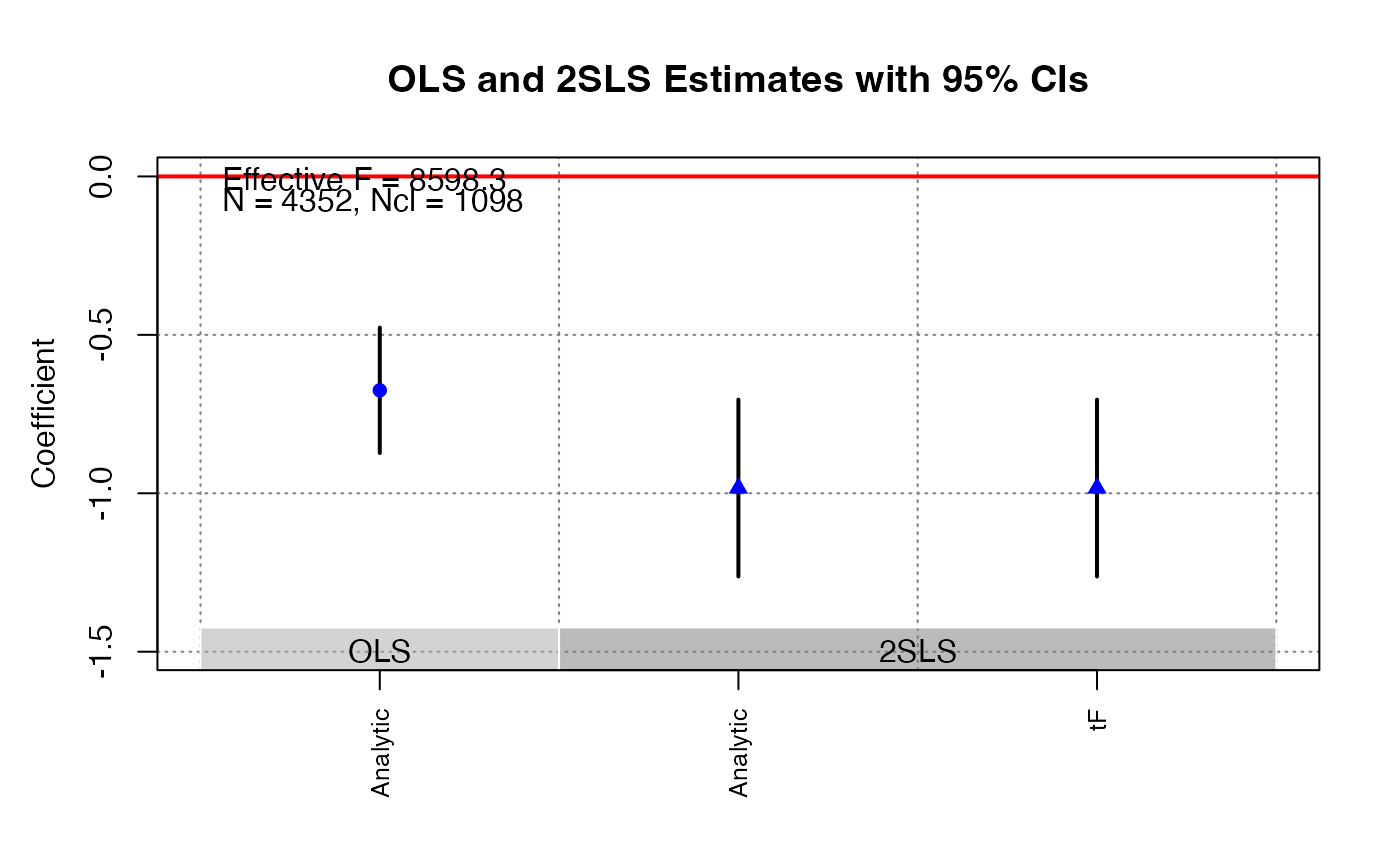Omnibus Function for IV Estimation and Diagnostics
ivDiag.RdConducts various estimation and diagnostic procedure for instrumental variable designs in one shot.
Usage
ivDiag(data, Y, D, Z, controls = NULL, FE = NULL, cl = NULL, weights = NULL,
bootstrap = TRUE, run.AR = TRUE,
nboots = 1000, parallel = TRUE, cores = NULL,
seed = 94305, prec = 4, debug = FALSE)Arguments
- data
name of a dataframe.
- Y
a string indicating the outcome variable.
- D
a string indicating the treatment variable.
- Z
a vector of strings indicating the instrumental variables.
- controls
a vector of strings indicating the control variables.
- FE
a vector of strings indicating the fixed effects variables.
- cl
a string indicating the clustering variable.
- weights
a string indicating the variable that stores weights.
- bootstrap
whether to turn on bootstrap (TRUE by default).
- run.AR
whether to run AR test (TRUE by default).
- nboots
a numeric value indicating the number of bootstrap runs.
- parallel
a logical flag controlling parallel computing.
- cores
setting the number of cores.
- prec
precision of CI in string (4 by default).
- seed
setting seed.
- debug
for debugging purposes.
Value
- est_ols
results from an OLS regression.
- est_2sls
results from a 2SLS regression.
- AR
results from an Anderson-Rubin test
- F_stat
various F statistics.
- rho
Pearson correlation coefficient between the treatment and predicted treatment from the first stage regression (all covariates are partialled out).
- tF
results from the tF procedure based on Lee et al. (2022)
- est_rf
results from the first stage regression.
- est_fs
results from the reduced form regression.
- p_iv
the number of instruments.
- N
the number of observations.
- N_cl
the number of clusters.
- df
the degree of freedom left from the 2SLS regression
- nvalues
the unique values the outcome Y, the treatment D, and each instrument in Z in the 2SLS regression.
References
Lal, Apoorva, Mackenzie William Lockhart, Yiqing Xu, and Ziwen Zu. 2023. "How Much Should We Trust Instrumental Variable Estimates in Political Science? Practical Advice Based on 67 Replicated Studies." Available at: https://yiqingxu.org/papers/english/2021_iv/LLXZ.pdf
Lee, David S, Justin McCrary, Marcelo J Moreira, and Jack Porter. 2022. "Valid t-Ratio Inference for IV." American Economic Review 112 (10): 3260–90.
Examples
data(ivDiag)
g <- ivDiag(data = rueda, Y = "e_vote_buying", D = "lm_pob_mesa",
Z = "lz_pob_mesa_f", controls = c("lpopulation", "lpotencial"),
cl = "muni_code", bootstrap = FALSE, run.AR = FALSE)
plot_coef(g)
 library(testthat)
test_that("Check ivDiag output", {
expect_equal(as.numeric(g$est_2sls[1,1]), -0.9835)
})
#> Test passed 🥳
library(testthat)
test_that("Check ivDiag output", {
expect_equal(as.numeric(g$est_2sls[1,1]), -0.9835)
})
#> Test passed 🥳